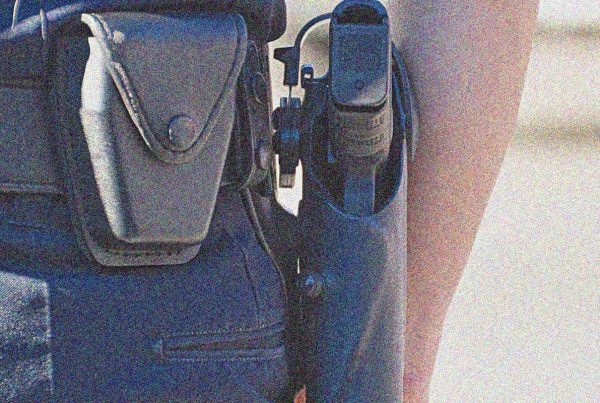L'ACLC comparaîtra aujourd'hui à titre d'intervenant devant la Cour suprême du Canada dans l'affaire R. c. Singer. Cette affaire porte sur la portée de la « permission implicite de frapper ». Il s’agit d’une règle de common law qui permet aux membres du public, y compris aux policiers, de s’approcher de la porte d’une résidence et de frapper pour communiquer avec l’occupant, sans avoir au préalable obtenu un mandat ou en cas de circonstances impérieuses.
Cette affaire concerne la portée de l’autorisation implicite de frapper à la porte lorsqu’il s’agit de la police. L’ACLC soumettra que la question de savoir si la police a une autorisation implicite de frapper à la porte dépend de la raison pour laquelle elle entre dans une propriété privée, ou de son « objectif sous-jacent ». Si la police entre dans une propriété pour enquêter sur une infraction criminelle, y compris en interrogeant les occupants, elle doit se conformer à l’article 8 de la Charte, le droit de ne pas subir de perquisition ou de saisie abusive. Cela nécessiterait que la police dispose d'un mandat ou de circonstances impérieuses pour pénétrer dans la propriété.
Vous pouvez lire le factum (arguments juridiques) de la CCLA ici.
La CCLA remercie Nader R. Hasan et Alexandra Heine de Stockwoods LLP pour leur excellent travail. pro bono représentation dans ce cas.
À propos de l’association canadienne sur les libertés civiles
L’ACLC est un organisme indépendant à but non lucratif qui compte des sympathisant.e.s dans tout le pays. Fondé en 1964, c’est un organisme qui œuvre à l’échelle du Canada à la protection des droits et des libertés civiles de toute sa population.
Pour les médias
Pour d'autres commentaires, veuillez nous contacter à media@ccla.org.
Pour les mises à jour en direct
Veuillez continuer à vous référer à cette page et à nos plateformes de médias sociaux. On est dessus Instagram, Facebook, Twitter et Ciel bleu.





